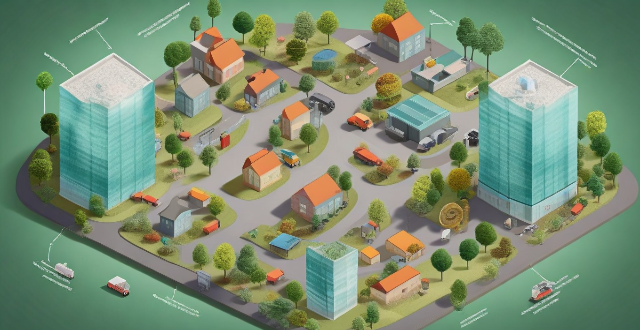Businesses can reduce their carbon footprint through energy efficiency, waste reduction, and sustainable practices. Energy efficiency measures include switching to renewable energy sources, improving building insulation, and optimizing energy use. Waste reduction strategies involve implementing recycling programs, reducing paper use, and composting. Sustainable practices encompass green procurement, sustainable packaging, and promoting eco-friendly transportation options. By adopting these methods, businesses not only contribute to environmental sustainability but also enhance their brand image and attract eco-conscious customers.

Effective Ways to Reduce Carbon Footprint in Businesses
Introduction
Reducing carbon footprint is crucial for businesses not only to contribute to environmental sustainability but also to enhance their brand image and attract eco-conscious customers. Here are some effective ways to achieve this goal:
Energy Efficiency
1. Switch to Renewable Energy Sources
- Solar Power: Install solar panels on the rooftop or in the parking lot to generate clean energy.
- Wind Energy: Invest in wind turbines if your business operates in a windy region.
- Hydroelectric Power: If feasible, consider using hydroelectric power generated from water sources.
2. Improve Energy Efficiency of Buildings
- Insulation: Properly insulate buildings to reduce heating and cooling needs.
- LED Lighting: Replace traditional lighting with energy-efficient LED bulbs.
- Smart Thermostats: Install smart thermostats to regulate temperature efficiently.
3. Optimize Energy Use
- Power Management: Implement power management systems to reduce energy waste during non-working hours.
- Equipment Upgrades: Upgrade old equipment to more energy-efficient models.
- Employee Training: Train employees on energy conservation practices.
Waste Reduction
4. Implement a Recycling Program
- Separate Bins: Place separate bins for different types of recyclable materials.
- Partnerships: Partner with local recycling facilities to ensure proper disposal.
- Employee Education: Educate employees about the importance of recycling.
5. Reduce Paper Use
- Digital Documents: Encourage the use of digital documents instead of printing.
- Reusable Products: Use reusable products like cloth towels instead of paper towels.
- Double-Sided Printing: Implement double-sided printing to save paper.
6. Composting
- Organic Waste Disposal: Start a composting program for organic waste like food scraps.
- Gardening: Use the compost for office gardening projects.
- Partnerships: Partner with local farms or gardens to donate compost.
Sustainable Practices
7. Green Procurement
- Eco-Friendly Supplies: Choose suppliers that offer eco-friendly products and services.
- Bulk Purchasing: Purchase items in bulk to reduce packaging waste.
- Digital Invoices: Use digital invoices and receipts instead of paper ones.
8. Sustainable Packaging
- Biodegradable Materials: Use biodegradable or recyclable packaging materials.
- Minimal Packaging: Minimize unnecessary packaging and choose products with minimal packaging.
- Packaging Return Programs: Implement packaging return programs for customers to return used packaging for recycling.
9. Green Transportation
- Carpooling: Encourage carpooling among employees to reduce carbon emissions from commuting.
- Public Transportation: Offer incentives for employees who use public transportation.
- Electric Vehicles: Consider investing in electric vehicles for company fleets or offering charging stations for employee use.
Conclusion
By implementing these strategies, businesses can significantly reduce their carbon footprint and contribute to a healthier planet while also benefiting from cost savings and improved reputation. It's essential for companies to continuously evaluate their practices and make adjustments as needed to maintain progress towards sustainability goals.